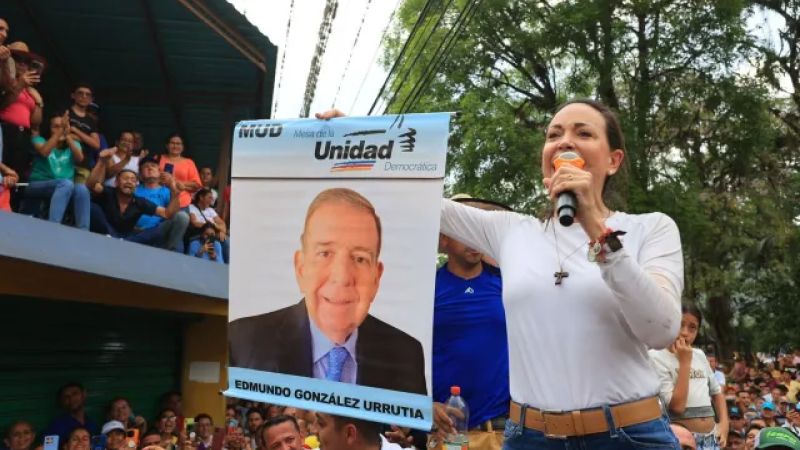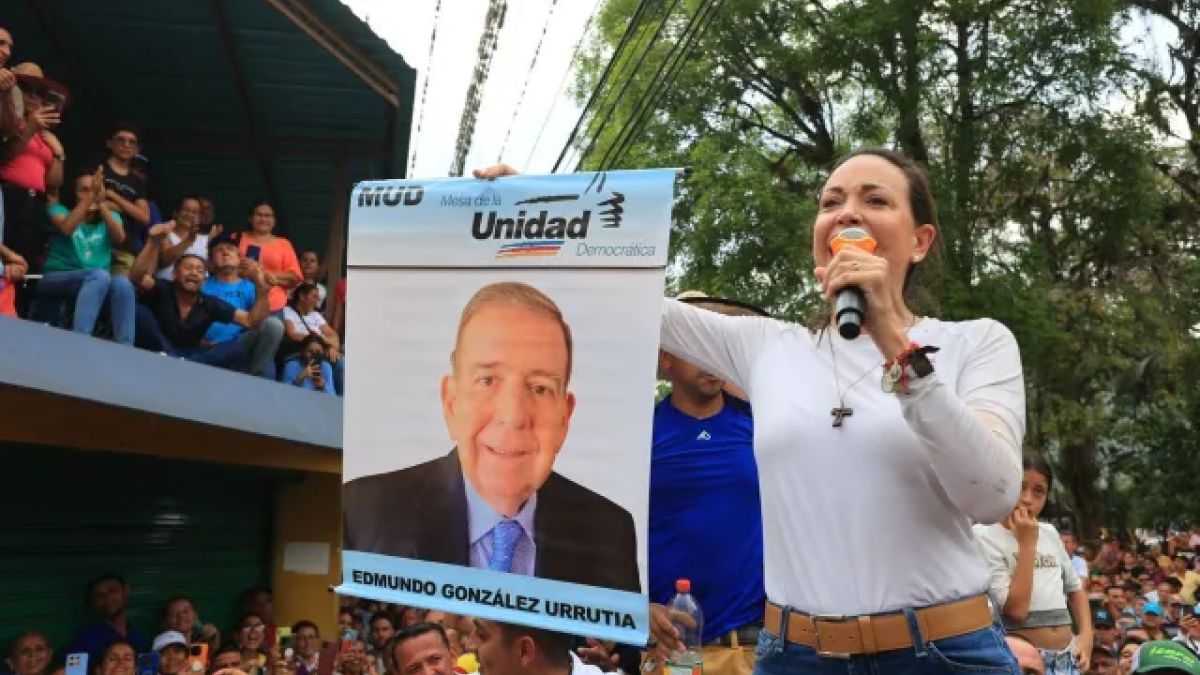Is history repeating itself? They were thrilled and disappointed.



Published at: 17/05/2024 07:00 PM
As we reported on
this page last week, the Venezuelan opposition, with its media montage,
has always acted in electoral times as owners of an overwhelming victory,
showing itself the winner in all the polls conducted, making up
photographs during its campaign events and then, once reality confronts them, they fall into depression.
Just as
we detailed the behavior of the pollsters in Henrique Capriles' 2012 campaign
against the leader of the Bolivarian Revolution, Commander Hugo Chávez, we can remember that in 2006, during the presidential campaign of that time, they were the winner
Overwhelming
opposition candidate Manuel Rosales against Chávez himself, with
news titles on foreign portals such as
The Voice of America, which in October of that year, published that “Thousands of Venezuelans marched in Caracas on
Saturday in support of the main opposition presidential candidate Manuel
Rosales, who described the event as an avalanche of the opposition.”
Rosales ,
the main candidate of the Venezuelan opposition in 2006, closed his
election campaign in Caracas with a
massive rally, in which he announced that President Chávez would fall “on the verge of votes on December 3.”
The rally was held in the east of the
capital city, the epicenter of the urbanizations of affluent social strata, and
was nourished by marches that started from five meeting points, also located in middle class environments.
His speech was marked
by small cuts in the PA system that repeated the slogan of his campaign: “Dare”,
for which he received a lawsuit from the musical group Calle 13 for plagiarism.
During that
campaign closure, Rosales told the EFE news
agency: “I'm going to be the president of 26 million
citizens to reconcile Venezuela,” he said, and asked for everyone's help
“not only to win on December 3 but to govern and be able to stand up on my
shoulders, the day I fulfill my term of office,” repeating the phrase of the former president, Carlos Andrés Pérez.
In the same way, the news
portal Elmundo.es, published on December 4, 2006 that “Rosales is the unitary candidate
chosen by the Venezuelan opposition in a desperate attempt to remove Chávez from power. After the
polls revealed him as the opposition candidate best placed and loved by public
opinion, the only one to reach two points in the polls, his rivals
decided to make a pineapple about him. Eight
opposition leaders have shown their support and have withdrawn from the fight for the presidential seat.
A milestone in the history of Venezuela,” the website
detailed in its editorial.
Surveyors in 2006
For the
Venezuelan opposition, polls became a propaganda tool, in
which they praised polls that were favorable to them while
denouncing as paid and false those that were not. On this subject, the
director of the Datanalisis polling company,
Luis Vicente León, stated in
October of that year that “the Government may not like us to think that Rosales can still grow
(electorally), but the opposition has disqualified all the polls in which Chávez
figure with 20 dots
above Rosales”.
Thus, in the middle of the campaign,
the opposition candidate declared that “the real polls, not the
purchased ones, the polls say that in a few days Venezuela will have a new president for social democracy. And
if they are not satisfied, let them (...) see this other survey live,” Rosales said in his closing speech to
his supporters.
At that time, only three
polling companies reflected a
much smaller difference between the two main candidates to the point of declaring it a technical tie: the Keller and Associates Company, which
gave President Chávez 52% support while
Governor Rosales obtained 48% approval, the firm
Survey Fast, which estimated 49.8% for Chávez against 49.1% for Rosales and the company Cifras Encuestadora Ceca, which
in a survey whose results were published on October 23 indicated
an intention to vote of 41.3% in favor of Rosales
against 39.5% obtained by Chávez, this
being the only one where the main opposition candidate surpassed the Homeland candidate.
In contrast to these
studies blinded by triumphalism, the opposition ignored those
polls in which the president Hugo Chávez, who won the
presidential elections with 62.84% of votes for the period 2007-2013 in the Bolivarian Republic of Venezuela, was reflected as the resounding winner of that
presidential election .
.
Thus, the day after the electoral
event, the then former candidate Manuel
Rosales held a press conference
from the Eurobuilding Hotel, in which he acknowledged that there was no fraud and declared
that “we won in cities like Maracaibo, San Cristóbal and Mérida, but that is not the sum of the votes or
the reflection of a country”.
From that moment on,
as explained by researcher Tomás Straka in his article called The Tragedy of the Venezuelan Opposition,
“the disaster experienced by the Venezuelan opposition is likely to become
a model of study, because it shows that in politics things are not what they
seem to be and that the stories that are made of it generally come from a
unrational management of reality, which leads to a disenchantment
transformed into frustration”.
Apparently, and according to the way the news is
going, the same scenario of 2006, 2012
and 2014 will most likely be repeated...
AMELYREN BASABE/Mazo News Team